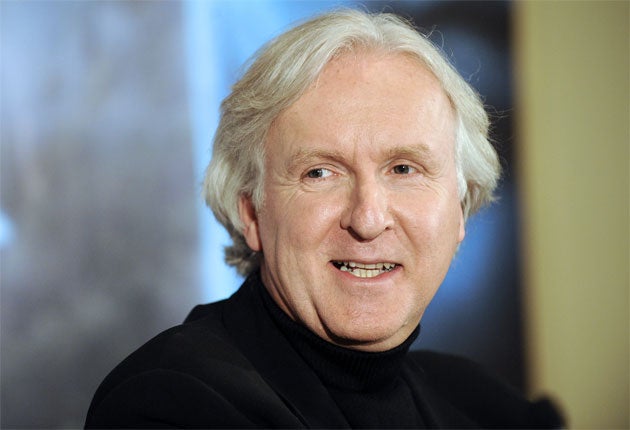US turns to king of the disaster movie for its happy ending

Your support helps us to tell the story
From reproductive rights to climate change to Big Tech, The Independent is on the ground when the story is developing. Whether it's investigating the financials of Elon Musk's pro-Trump PAC or producing our latest documentary, 'The A Word', which shines a light on the American women fighting for reproductive rights, we know how important it is to parse out the facts from the messaging.
At such a critical moment in US history, we need reporters on the ground. Your donation allows us to keep sending journalists to speak to both sides of the story.
The Independent is trusted by Americans across the entire political spectrum. And unlike many other quality news outlets, we choose not to lock Americans out of our reporting and analysis with paywalls. We believe quality journalism should be available to everyone, paid for by those who can afford it.
Your support makes all the difference.The American government may be turning to Hollywood in its desperate search for an end to the environmental catastrophe in the Gulf of Mexico, but even if the director involved is James Cameron no one is assuming a happy ending.
Mr Cameron is best known for directing Avatar, a science fiction story of ecological calamity on another planet, and the ocean disaster movie Titanic. It is, therefore, perhaps unsurprising that he should be included in a group of about 20 scientists invited to meet with the Environmental Protection Agency (EPA) in Washington earlier this week to try to come up with last-ditch solutions to the oil disaster.
It was mostly for his expertise in deepwater submersible technology that Mr Cameron was added to the group. He had earlier offered to loan submersible craft that he owns to the effort in the Gulf. Mr Cameron purchased them for his own exploration of the real Titanic beneath the Atlantic and for a series of other documentaries on deep ocean exploration.
The meeting was convened "as part of the federal government's ongoing efforts to hear from stakeholders, scientists and experts from academia, government and the private sector as we continue to respond to the BP oil spill", the EPA said in a statement.
BP has said it has received more than 3,000 unsolicited suggestions from the public of strategies or contraptions that might be deployed to seal the leak. But being a celebrity helps get their attention. Kevin Costner, the star of the film Waterworld, has offered BP a machine he has developed to clean polluted oceans using centrifugal force. BP has reportedly given initial approval to use the technology, which is supposed to have the capacity to rinse 97 per cent of any oil in sea water.
Also involved in the clean-up is Victoria Principal, the former star of Dallas, the soap opera about the family of an oil baron. Her contribution has been monetary: $200,000 (£137,000) towards the mop-up operations. Mr Cameron attended the Washington meeting with deep-ocean expert Phil Nuytten, president of the Vancouver-based Nuytco Research, seen as a world leader in undersea technology. Mr Nuytten's company built the mini-submarines used by Mr Cameron in the making of another of his water-themed films, The Abyss.
Join our commenting forum
Join thought-provoking conversations, follow other Independent readers and see their replies
Comments